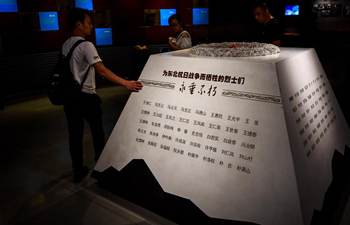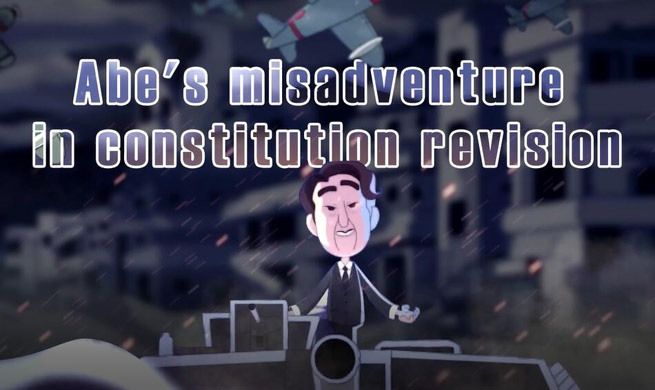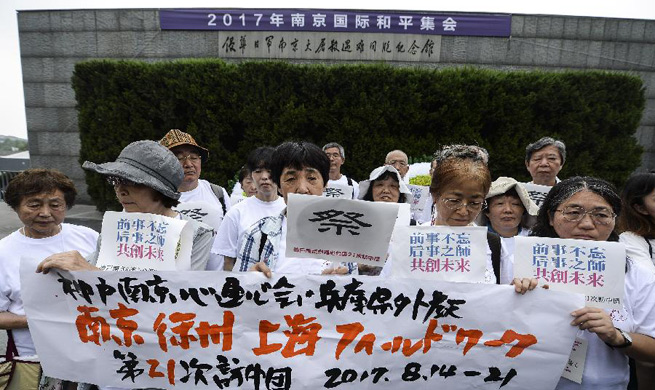LONDON, Aug. 15 (Xinhua) -- Britain on Tuesday published a position paper in a bid to negotiate a "temporary customs union" arrangement with the European Union (EU) for an interim period after Brexit to avoid chaos in cross-border trade.
Britain is seeking to strike the EU deal to retain the main benefits of the customs union for years after it has left the regional bloc, said the position paper.
The official document, the first in a series of "future partnership papers" to reveal the British government's strategy on the post-Brexit arrangement, was published as part of London's efforts to counter criticism from Brussels about its approach to the Brexit talks.
EU officials said in July that it was hard to make a progress in the Brexit talks because Britain had no position at all on many issues.
Britain hopes to keep the temporary arrangement in place until a final trade agreement with the EU takes effect, according to the paper.
The British proposal, if accepted by Brussels, will allow the transit of goods across borders to continue as now. After Brexit, there will be no need for companies to fill in additional paperwork, ensuring that goods move smoothly across the border with the rest of the EU countries.
In 2016, Britain imports and exports from the EU totalled 553 billion pounds (some 718 billion U.S. dollars).
The position paper was released ahead of the start of next round of negotiations between Britain and the EU on Aug. 28. London is expected to issue the second position paper on Wednesday on the borders between Ireland and northern Ireland, which is part of the United Kingdom.
The proposed model, which means close association with the EU customs union for a time-limited period, would ensure that UK businesses only have to adjust once to a new customs relationship.
This would minimize disruption and offering business a smooth and orderly transition, observers said here.
David Davis, the British Brexit secretary, told reporters here Tuesday that the new custom union is expected to be in place by the first half of 2019.
"The approaches we are setting out today will benefit both the EU and UK, and avoid a cliff-edge for businesses and individuals on both sides," Davis said.
"The way we approach the movement of goods across our border will be a critical building block for our independent trade policy," he said. "An interim period would mean businesses only need to adjust once to the new regime and would allow for a smooth and orderly transition."
Meanwhile, the British chancellor of the exchequer, Philip Hammond, said: "Our proposals are ambitious and set out arrangements that would allow British businesses to continue to trade with their European partners in the future, while expanding their markets beyond the EU."
The Brexit talks reached their second round in Brussels in July, but reported little progress.
The two-year deadline for negotiations was set into operation when British Prime Minister Theresa May triggered Article 50 to leave the EU at the end of March.

















